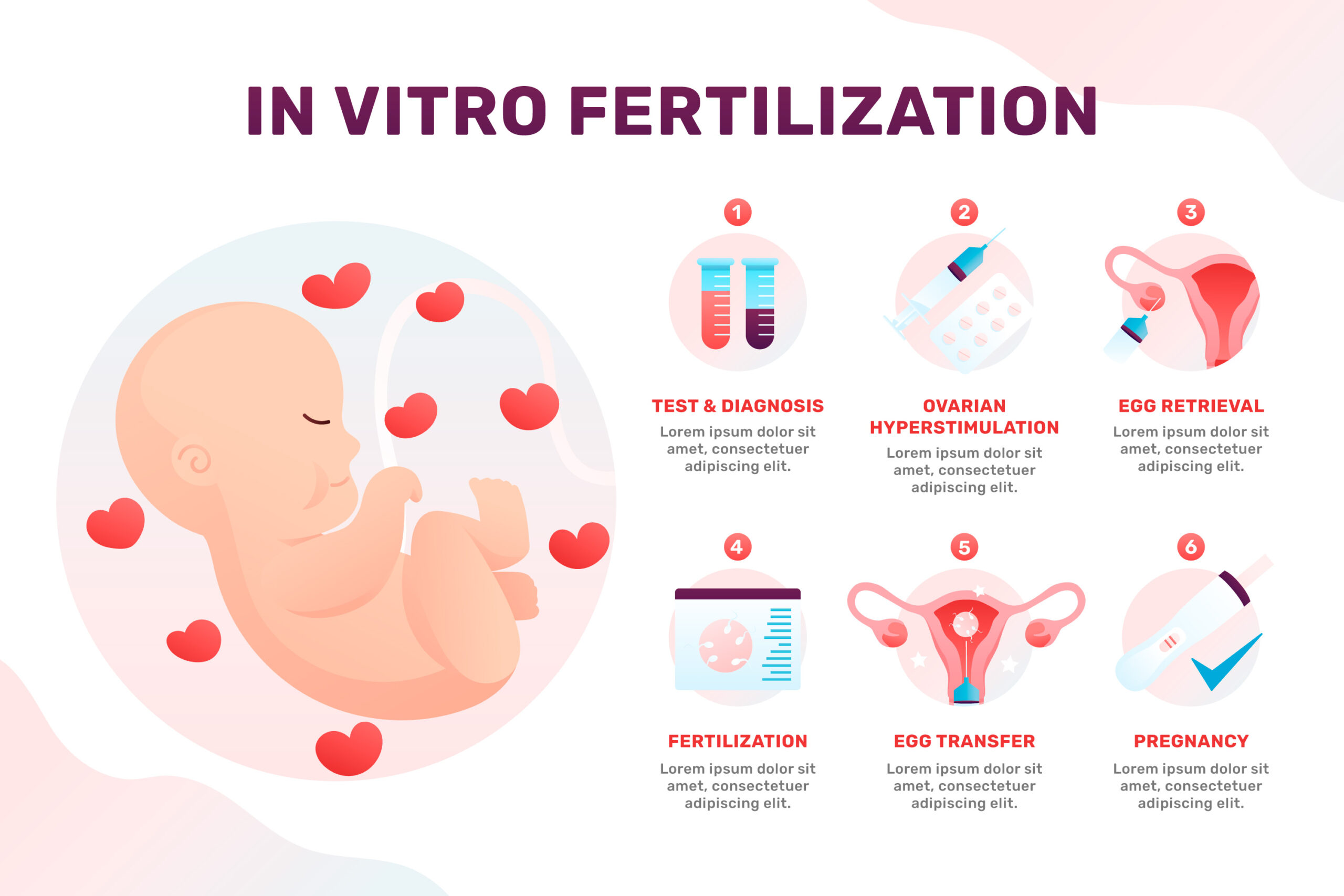Fertility challenges are more common than many people realize. According to global estimates, about 1 in 6 adults experiences difficulty conceiving at some point. In India, millions of couples across urban and rural areas are affected. Factors such as lifestyle shifts, stress, delayed parenthood, and underlying health conditions all play a role.
While the journey can be emotionally and physically demanding, modern reproductive medicine—ranging from ovulation therapies to IUI and IVF—offers real hope.
What Is Infertility?
Infertility is defined as not getting pregnant after 12 months of regular, unprotected sex (or 6 months if you’re 35 or older).
There are different types:
- Primary infertility: When pregnancy has never occurred.
- Secondary infertility: When pregnancy happened in the past, but now it isn’t happening again.
- Unexplained infertility: When tests show no clear reason, but conception still doesn’t happen.
It’s important to remember that infertility affects both men and women—about one-third of cases are female-related, one-third male-related, and one-third involve both partners or remain unexplained.
When to Seek Help
You may want to see a healthcare provider if:
- You’re under 35 and haven’t conceived after 12 months.
- You’re 35 or older and haven’t conceived after 6 months.
- You have irregular cycles, known reproductive conditions, or a history of pelvic infections or surgeries.
- Your partner has issues like erectile dysfunction or a history of testicular injury.
Early assessment improves the chances of finding answers and choosing the right plan.
Signs
The most common sign is simply not becoming pregnant despite trying. Other possible signs include:
- Irregular or absent periods.
- Pelvic pain or history of pelvic disease.
- Ejaculation problems or very low semen volume in men.
Causes
Infertility can stem from many factors, sometimes more than one at a time.
For women, common causes include:
- Ovulation problems (like PCOS or irregular hormone signals).
- Blocked fallopian tubes (from infections, surgery, or endometriosis).
- Uterine conditions (fibroids, polyps, or abnormalities).
- Primary ovarian insufficiency (low egg reserve or poor egg quality).
- Thyroid or autoimmune conditions.
For men, common causes include:
- Low sperm count or poor sperm movement.
- Enlarged scrotal veins (varicocele).
- Hormonal imbalances (low testosterone).
- Past testicular injury, radiation, or chemotherapy.
- Genetic conditions like Klinefelter syndrome.
- Lifestyle factors—smoking, alcohol, drugs, or frequent high heat exposure to the testicles.
How Infertility Is Diagnosed
For women, tests may include:
- Blood tests for hormones and ovulation.
- Ultrasound to check ovaries and uterus.
- Hysterosalpingogram (HSG) to see if fallopian tubes are open.
- Laparoscopy to detect endometriosis, scar tissue, or pelvic problems.
For men, tests may include:
- Semen analysis to check sperm count, shape, and movement.
- Hormone and genetic blood tests.
- Ultrasound of the scrotum to detect blockages or varicocele.
A fertility evaluation usually involves both partners since infertility often has shared causes.
Treatment Options for Infertility
Treatment depends on the cause, age, and preferences of the couple. Many people conceive after one or more of these approaches:
Lifestyle Changes
- Maintaining a healthy weight.
- Quitting smoking, alcohol, and drug use.
- Managing stress and moderating exercise.
- Treating underlying conditions like diabetes or thyroid disease.
Medications
- Clomiphene citrate or letrozole to induce ovulation.
- Gonadotropin injections for women who don’t respond to oral medication.
- Hormonal treatments for men with low testosterone or sperm issues.
Intrauterine Insemination (IUI)
A healthcare provider places sperm directly into the uterus at the right time in the cycle. This is often a first-line procedure for mild infertility.
In Vitro Fertilization (IVF)

Eggs are retrieved from the ovaries, fertilized with sperm in the lab, and then placed back into the uterus. IVF may include:
- ICSI (Intracytoplasmic Sperm Injection): a single sperm is injected into an egg.
- Embryo freezing: extra embryos can be stored for future cycles.
- Donor eggs, sperm, or embryos when needed.
Surgery
- Removing fibroids, polyps, or scar tissue.
- Repairing varicoceles in men.
Opening blocked fallopian tubes.
Risks and Complications of Treatment
Like any medical treatment, fertility procedures carry risks, including:
- Multiple pregnancies (twins or triplets).
- Ovarian hyperstimulation syndrome (OHSS) from fertility drugs.
- Ectopic pregnancy (when an embryo implants outside the uterus).
Emotional and financial stress if multiple cycles are required.
Can Infertility Be Cured?
Many cases can be treated successfully. In fact, about 9 out of 10 couples conceive with the help of fertility treatments. Sometimes lifestyle changes are enough, while other cases need ART like IVF.
Emotional and Mental Health Support
Infertility is more than just medical—it’s emotional. It can bring stress, sadness, and frustration. Couples may feel pressure from family or society. Talking to a counselor, joining a support group, or simply sharing experiences with others going through the same journey can make a huge difference.
Conclusion
Infertility is a challenge, but it’s not the end of the journey. With today’s diagnostic tools and treatments—from lifestyle changes to IVF—many couples go on to build the families they’ve dreamed of.
The most important step is to seek help early, understand your options, and make informed choices with guidance from your healthcare provider.
Book Your Infertility Consultation Today
At Angel Agastya Multi Speciality Hospital, Delhi, we understand the emotional journey couples face while dealing with infertility. Our dedicated team of fertility specialists offers advanced treatments like IUI, IVF, and ovulation therapies, combined with compassionate care to support you every step of the way. Let us help turn your dream of parenthood into reality.
📞 Call for appointments: +91-9667294291
📍 Visit us at: Angel Agastya Multi Speciality Hospital,
Pillar No 39, RZ-14 Raj Nagar, 40, Palam, New Delhi, Delhi 110045
FAQs
Primary infertility means never having been pregnant. Secondary infertility means being unable to conceive again after a previous pregnancy.
If you’re under 35 and haven’t conceived after 12 months, or if you’re over 35 and haven’t conceived after 6 months.
Success rates vary by age, health, and cause of infertility. Younger women generally have higher success rates.
Not always, but lifestyle choices—like maintaining a healthy weight, avoiding smoking, and treating STIs—can help protect fertility.
Coverage varies. Some policies include procedures like IUI or surgery, but many don’t fully cover IVF.

